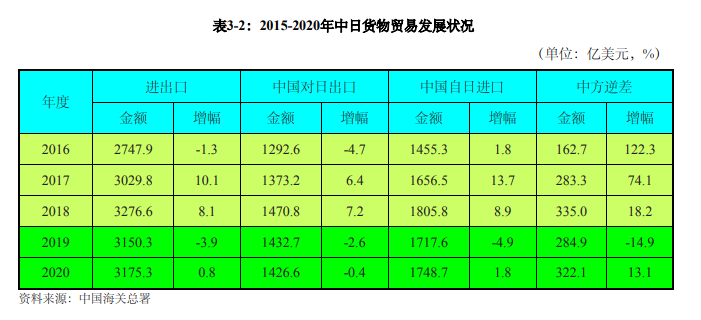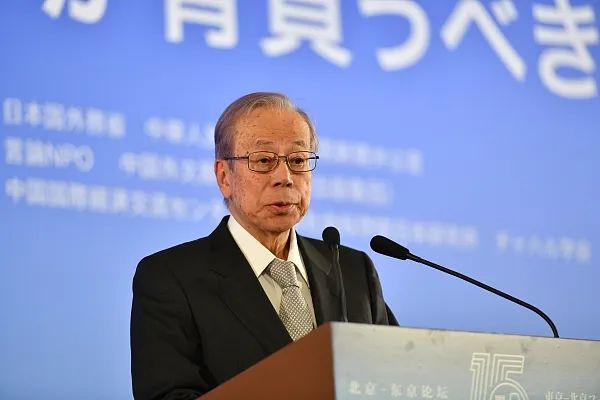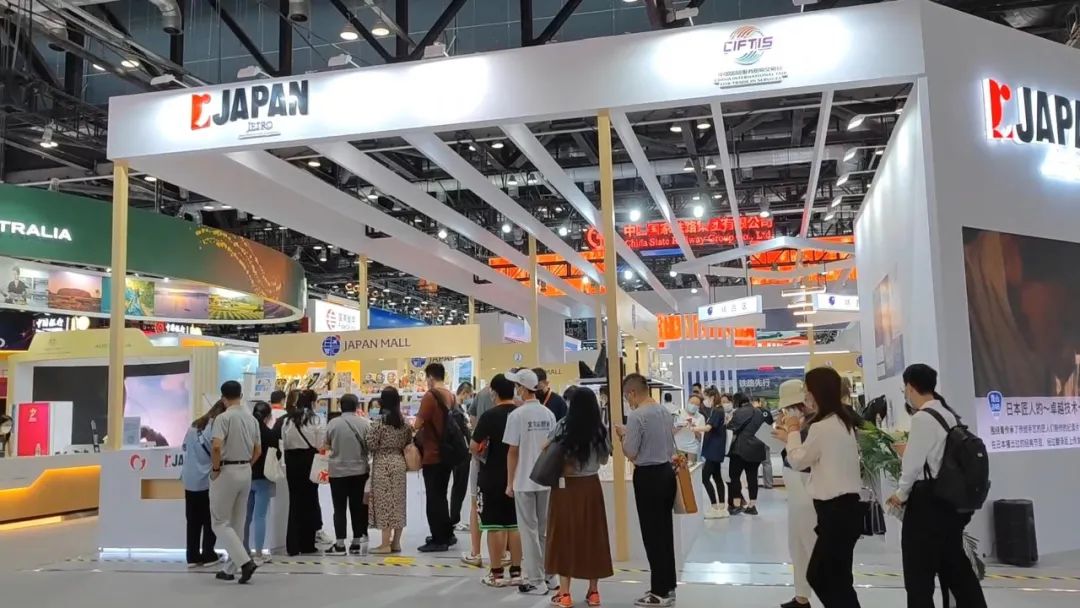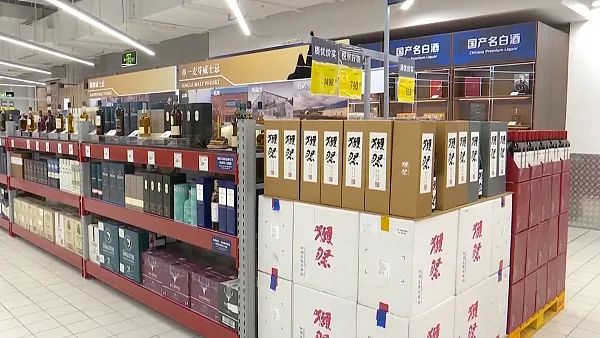Wei Jianguo: Economic and trade relations will still be the long -term driving force for the development of Sino -Japanese relations
Author:Chinese network Time:2022.09.23

On September 29, 1972, China and Japan signed the "China -Japan Joint Statement", marking the normalization of China -Japan diplomatic relations. Over the past 50 years, the economic and trade cooperation between the two countries has achieved great development, forming a good situation of reciprocal, complementary, mutually beneficial and win -win, and injecting vitality into regional and world development. Today, the trade volume of the two countries has grown from more than US $ 1 billion per year at the beginning of the normalization of diplomatic relations to more than $ 300 billion. Under the epidemic, China -Japan trade in 2021 still increased against the trend, showing the toughness of cooperation.
In 50 years, what role does economic and trade play in promoting the development of relations between the two countries? What new features will be presented in the future? Faced with the next 50 years, how should the two countries further strengthen economic and trade cooperation? In response, Wei Jianguo, deputy director of the China International Economic Exchange Center and former vice minister of the Ministry of Commerce, expressed the following wonderful views in an interview with the reporter of the People's China.

2015-2020 Sino-Japanese cargo trade development status (Source: "Foreign Investment Cooperative Country (Region) Guide Japan (2021)")
Reflection from China -Japan economic and trade relations to reflect the friendly driving force of the two countries
In the past 50 years, economic and trade relations have always been the cockpit stones and stabilizers of Sino -Japanese relations. This is the result of the joint efforts of the two governments, enterprises, and folks. Regardless of whether the two countries are "political cold and hot" or "political cold and cold", large Japanese enterprises such as Toyota and Ito, as well as organizations such as the Japanese Economic Group Federation and the Japan Trade Promotion Association Has made unremitting efforts with the people. They insist on visiting China every year, and I have participated in the reception group more than 20 times.
It is worth emphasizing that the healthy development of Sino -Japanese relations is inseparable from the promotion of some senior people. For example, the former Prime Minister of Japan, Fukuda Kangfu, is a very respectable promoter of China -Japan. I met Mr. Futian Kangfu during a visit with Chairman Jia Qinglin at a time. Despite some changes in the interview, with his efforts, he finally achieved a complete success. Later, Mr. Futian Kangfu served as the chairman of the Boao Forum for Asia. At that time, I was the assistant of Zeng Peiyan, the chairman of the China International Economic Exchange Center, and established a close contact with each other. Under the promotion of Mr. Futian Kangfu, the exchange of people in the economic and trade community between China and Japan, especially the National Economic Center and the annual high -level dialogue between the Japan Economic Team Union, has received the attention of the leaders of China and Japan. It can be said that these are the result of his unremitting efforts.

On October 26, 2019, the opening ceremony of the 15th "Beijing-Tokyo Forum" was held in Beijing. Former Japanese Prime Minister Fukuda attended the forum and delivered a keynote speech. Figure/People's Vision
There are many Japanese friendly people around me who have made many important contributions to promoting China -Japan friendship silently. It is admirable that they always adhere to the belief that "China -Japan friendship will definitely promote the economic and trade cooperation between the two countries to win a win -win situation." We need to take them as an example in strengthening China -Japan friendship.
Three changes that may occur in China -Japan economic and trade relations
I always believe that the economic and trade cooperation between China and Japan is very complementary, and economic and trade relations will become the "Dinghai God Needle" to promote the development of relations between the two countries. In the past, Japan took on China's reform and opening up of the express train and invested in many factories in China, which played a win -win role in the economic and trade cooperation between the two parties. Although the global epidemic is facing uncertain factors and the world economic recovery is weak, I think the amount of bilateral trade this year is likely to reach 400 billion US dollars or even more. Overall, in the next 5 to 10 years, China -Japan economic and trade relations will show the following three prominent changes with the development of the world trade situation.
First of all, most Japanese companies may change from investment to the investment market. In the past, most of Japan's investment in China was re -exported, but then there were fewer and fewer transfer. Some Japanese friends once told me that Japanese companies will not withdraw from China, and they now hope to "produce in China and sell them in China." In the future, China will have 700 million middle class, and they will become the largest market for global production materials and living consumer goods. Therefore, Japan hopes to produce and sell in China in China. This is also a way for capital to pursue efficient operations: capital is willing to build factories to build At the closest to the market, to reduce logistics costs.


At the China International Services Trade Fair in 2022, the Japanese booth attracted many audiences to visit and scan the code directly. Photography: Gu Siyi/Asia Pacific Center
Secondly, the cooperation between Chinese and Japanese enterprises may gradually shift from large enterprises to small and medium -sized enterprises. Some "invisible champions" companies in Japan have outstanding craftsmanship in terms of high -precision technology. China now also advocates that small and medium -sized enterprises are new to specialized, that is, to cultivate a large number of "invisible champions". This is the complementary advantage of small and medium -sized enterprises between the two countries.
Japanese SMEs will further move towards the Chinese market and strengthen cooperation with private enterprises in China. In terms of economic theory, the "invisible champion" requires a unique business environment to continuously improve its professionalism, and these companies must find a market with a better global strategy. At present, the market that meets these two conditions is only the Chinese market. The Chinese market can meet the professional business environment required by the "invisible champion" enterprise with the spirit of craftsmen, and the integrity of the Chinese industrial chain is the world's largest, best, and most comprehensive Chinese manufacturing chain It can even be seamlessly connected. This is the market globalization strategy required for small and medium -sized "invisible companies" in Japan. Therefore, small and medium -sized enterprises in the two countries are in line at this point, which is different from the cooperation between the two major enterprises between the two countries in 50 years. As of now, China, Japan and South Korea have not signed a free trade agreement. Although China and South Korea have reached a bilateral free trade agreement, China, Japan, Japan and South Korea have not yet reached a bilateral free trade agreement. Therefore, the third change is that RCEP will become the "warm -up" and prelude to the Sino -Japanese and Korean Free Trade Agreement. For example, in terms of tariff reduction, after RCEP takes effect this year, many automotive parts imported from Japan will be reduced to zero tariffs. Therefore, many Japanese car companies in China can reduce production costs and reduce competitive pressure. Moreover, with the effectiveness of RCEP, Japanese cosmetics, beverages, meat products, etc. will become more and more popular.
The "Regional Comprehensive Economic Partnership Agreement (RCEP)" came into effect on January 1 this year. As a member state, China and Japan reached the first bilateral tariff reduction arrangement. The picture shows the sales of Japanese products in Beijing supermarket in February 2022. Photo/Visual China

In addition, China and Japan must carry out more work in the expansion of third -party markets. Throughout the "Belt and Road" third -party cooperation, China and Japan can be said to be partners with the most signing, the largest amount, and the best results. I think Japan has potential and can continue to do this work.
Maintain the principles to follow the development of Sino -Japanese relations
Whether it is a joint anti -epidemic, or in terms of promoting economic recovery, response to climate change and food crisis, carrying out poverty alleviation, joint construction of the "Belt and Road", and developing a low -carbon economy, China and Japan will play an important role. It is hoped that Japan can use China's development to further strengthen bilateral comprehensive and comprehensive economic and trade cooperation. In the next 50 years, the principles of developing Sino -Japanese economic and trade relations must still follow the principles of mutual respect, equality, win -win cooperation, and high development. This is the principle that the two countries have followed up for 50 years. It turns out that this principle has laid a solid foundation for Sino -Japanese economic and trade cooperation. In the future, this principle will also promote Sino -Japanese economic and trade relations to continue to reach a new level.
Interview, editor: Continue Xinyu
- END -
The Global Times launched a popular investigation on "whether the UN Human Rights Council should investigate the American infringement of human rights"

Xinhuanet, Beijing, August 6th. Recently, the Global Times launched a public opini...
The protests broke out in Bogine Faso, opposing France in the country in the country

Jimu Journalist Hu LiIntern Zhang TianzhengAccording to African News reports on Ju...